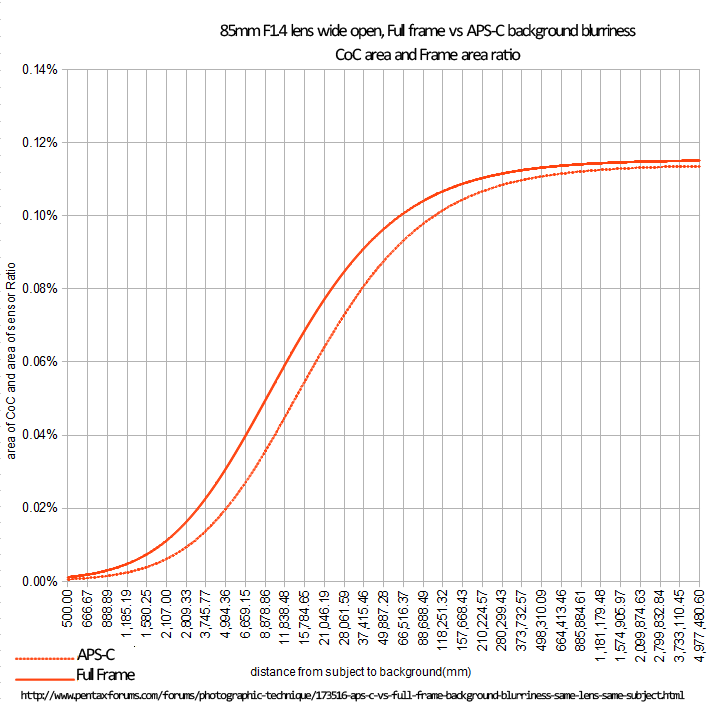 |
| Search this Thread |
| 01-31-2012, 12:36 AM | #1 |
| APS-C vs Full frame background blurriness on same lens same subject | |
| 01-31-2012, 01:23 AM | #2 |
| Adam PentaxForums.com Webmaster (Site Usage Guide | Site Help | My Photography)    PentaxForums.com server and development costs are user-supported. You can help cover these costs by donating or purchasing one of our Pentax eBooks. Or, buy your photo gear from our affiliates, Adorama, B&H Photo, KEH, or Topaz Labs, and get FREE Marketplace access - click here to see how! Trusted Pentax retailers:    | |
| 02-04-2012, 09:46 PM | #4 |
| 02-04-2012, 10:15 PM | #5 |
| 02-05-2012, 06:59 AM | #9 |
| Last edited by RioRico; 02-05-2012 at 07:13 AM. | |
| 02-05-2012, 08:00 AM | #10 |
| 02-05-2012, 01:55 PM | #11 |
| 02-05-2012, 10:16 PM | #13 |
| Last edited by Anvh; 02-05-2012 at 10:29 PM. | |
 |
| Bookmarks |
| Tags - Make this thread easier to find by adding keywords to it! |
| aps-c, blurriness, camera, distance, frame, lens, photography, ratio, sensor, subject, vs full frame |
 Similar Threads
Similar Threads | ||||
| Thread | Thread Starter | Forum | Replies | Last Post |
| Full frame/APS-C conversion chart for dummies | jonhock | Pentax SLR Lens Discussion | 31 | 07-03-2014 08:08 AM |
| Is a full frame lens on an aps-c, a negative? | outsider | Pentax SLR Lens Discussion | 36 | 03-30-2011 09:34 AM |
| Lens hoods on full frame, APS-C... | nater | Pentax Camera and Field Accessories | 4 | 08-04-2010 08:50 AM |
| Full frame Lens vs DA lens(APS) | bobmaxja | Pentax SLR Lens Discussion | 8 | 04-17-2010 12:03 PM |
| Full Frame, APS-C and Cinema | brucestrange | Photographic Technique | 12 | 12-20-2008 08:24 AM |
























